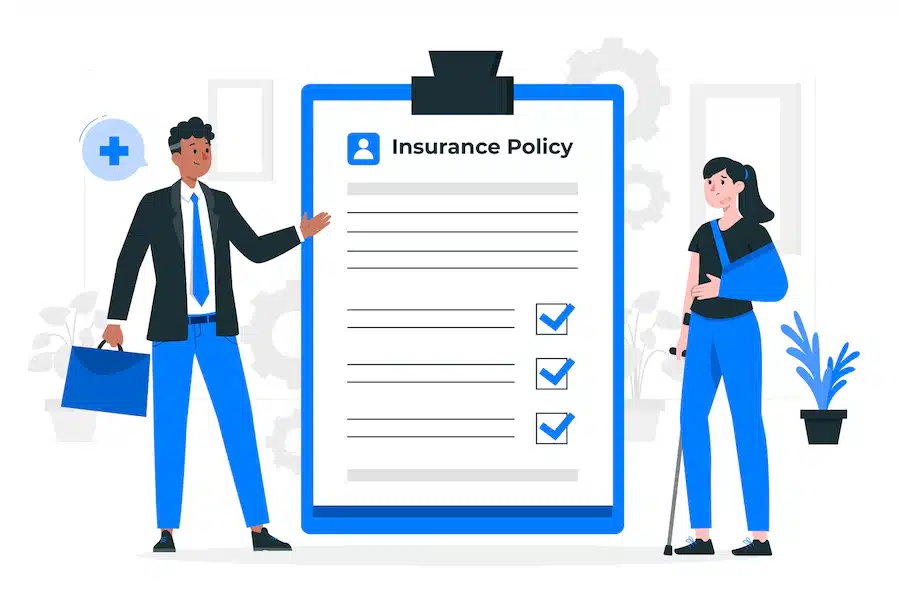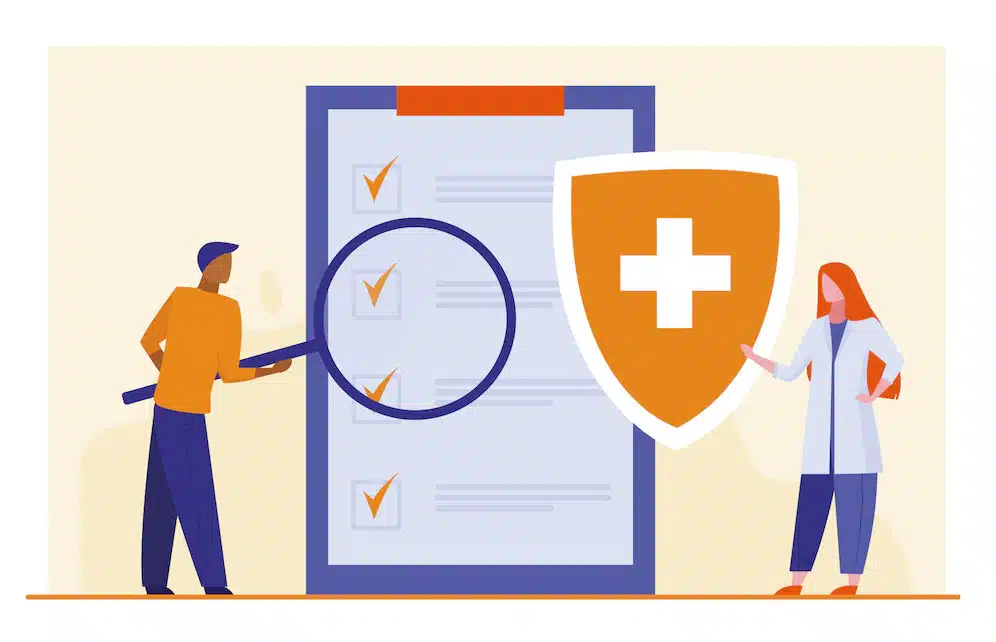Finding an insurance policy can be a challenging endeavor. With so many policies available to you, it may be hard to choose one that’s appropriate. Therefore, it is vital that you take time researching all available policies to identify what type of coverage would best meet your needs and compare quotes in order to secure yourself with an optimal plan that fits within both your budget and needs. With proper knowledge and preparation you are certain to find one that meets both these criteria!
Types Of Insurance

There are various kinds of insurance policies, so when choosing one it’s essential that you understand all your coverage options so that you can select one best suited to your needs. Some of the more popular kinds include:
Health Insurance – Health insurance provides protection for you and your family against the costs of medical care, from hospitalization to doctor’s visits and prescription drug costs. Most policies come with a deductible amount you must meet out-of-pocket before coverage kicks in.
Auto Insurance – Automobile insurance provides you with protection if an accident results in injury or property damage, with most states mandating such coverage to cover repairs to your car, medical costs for those involved and fines imposed as a result of the crash.
Life Insurance – Life insurance provides essential financial security to your loved ones in the event of your passing. Policies usually offer a death benefit that allows your heirs to cover funeral costs or settle any outstanding debts.
Disability Insurance- Disability insurance offers protection in case of illness or injury which prevents you from working, protecting you from income losses if necessary.
1) Evaluating Your Needs

Before embarking on your search for insurance policies, it is essential to evaluate your current situation to ascertain your needs. Begin by creating a list of assets like your home and car as well as valuables like jewelry or any outstanding debts such as any loans. After making this assessment of your needs you can select an appropriate policy; either all in one policy covering various forms of coverage or multiple policies separately to meet those needs. When making this selection consider factors like:
Your Current Financial Situation – Your current financial status plays a critical role in determining which types of coverage are right for you. If your assets are worth significant sums of money, additional coverage may provide essential protection in case of an expensive accident or disaster. If you have multiple outstanding debts, additional coverage could provide important protection in case of your inability to meet monthly payments. Your Current Living Situation – If you have children living with you or elderly relatives living nearby, selecting a policy with extra medical coverage might be in order. Also consider your health as well as that of those in your family if there is chronic illness or condition prevalent among any of them, since additional coverage might help with additional medical costs related to such issues.
2) Comparing Quotes

As soon as you’ve decided on the type of policy you want to purchase, the next step should be comparing quotes. There are various approaches you can take here; starting by reaching out to current insurance providers to see if they offer what you’re after is one way. Additionally, you should select one or two additional insurance providers and request quotes from them as well. In order to get the most cost-effective price possible, it’s crucial that you shop around and compare quotes from various providers. Start by browsing online and selecting several providers based on the policies they offer. After selecting several, it’s time to request a quote – make sure that when doing so you provide all relevant details, such as type of insurance desired as well as name, address and current coverage information that may be requested from you – in addition to any type of information the provider requests such as type, price or details on current policy coverage that are required from them.
3) Researching Insurance Companies

Once you have selected several providers and requested quotes, it’s time to conduct more in-depth research on each. Begin by visiting each company’s website and reading through any information provided there – this will give an understanding of their history, mission and types of services they provide. Reading customer reviews and searching online forums to see what others are saying about the company will also be invaluable in helping to establish whether or not it can be trusted and reliable. Once your research is complete, you can identify which company provides the ideal coverage for you. Keep in mind that the most expensive company may not always be best; opt instead for one which provides coverage at an affordable cost.
4) Understanding Policy Terms And Conditions

Once you’ve identified and obtained a quote for insurance coverage, it’s essential that you carefully read through its terms and conditions to fully comprehend its coverage. Begin by reviewing what types of coverage the policy offers – this will allow you to assess if its adequate for your needs. Additionally, it’s crucial that you read and review any exclusions and limitations contained within your policy to make sure it offers enough protection against accidents or disasters you wish to protect yourself against. Once you’ve read through the terms and conditions, you should be able to assess if the policy offers sufficient coverage for your needs. If there’s anything unclear in any aspect of the policy, don’t hesitate to ask your insurance provider; now would be an ideal time for this dialogue – ask any queries that arise before signing the contract – just so long as any queries about policy coverage or contract cancellation can be addressed properly before making your final decision.
5) Determining Deductibles And Coverage Limits

Decide the coverage amount and monthly premium cost are both essential components to selecting an insurance policy. In choosing your deductible and coverage limits, take into account both your current financial situation and how much risk you’re willing to take on. If you possess significant assets worth thousands of dollars, choosing a higher deductible could lower your monthly payments and may help secure them more securely. Furthermore, outstanding debts could benefit from this decision by choosing higher deductibles to keep payments low. Once you select a deductible, when something happens you’ll have to pay that amount out-of-pocket before your insurance will cover expenses. For instance if you get into an automobile accident with a policy with a $1,000 deductible then prior to coverage beginning you would owe $1,000 out-of-pocket and must cover that expense before any reimbursements from your provider can come through. A higher deductible means more costs must be covered out-of-pocket by yourself.
6) Getting Advice From An Insurance Broker

Once you have selected a policy, it is a wise practice to consult an insurance broker regarding your coverage to assess if it meets all your needs. Insurance brokers are licensed professionals who can assist in finding the appropriate policy and coverage level for you and your situation. Insurance brokers can also help you locate an insurer and negotiate the best possible deal, saving both time and money. When selecting an insurance broker, be sure to do your research and choose one with a good track record – this way you won’t waste either. Begin your research of potential brokers by reading reviews to ascertain if they meet your needs and requirements. When you find one who appears promising, ask questions about their experience and offerings; an experienced broker should be able to guide you through the process and assist with selecting an insurance policy tailored specifically to your individual circumstances.
Also Read – The Ultimate Guide To Choosing The Right Travel Insurance Policy
Finalizing Your Decision
Now is the time to seal your decision and sign the contract! Before doing so, read over the policy one more time and ensure it answers any of your queries or needs. Remember, however, that you always have the option to switch providers at any time and should take immediate steps if this decision changes your mind. In case this occurs, make sure to cancel any current policy as quickly as possible in order to secure a smooth transition process. Once you’ve selected and signed a policy contract, it can be hard to change your mind. If there are any concerns with either the provider or policy itself, it is best to address them quickly before signing; otherwise it could become impossible to address them later.

